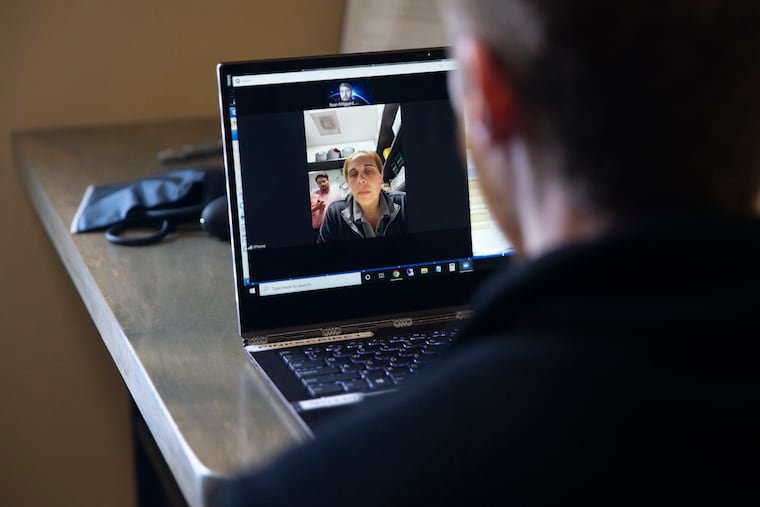Connecting with teens through telehealth | Expert Opinion
Talk about irony. As physicians we have been asking our teens to limit their screen time. Now, due to COVID-19, we are asking them to have their medical appointments via telehealth video visits.

Talk about irony. As physicians we have been asking our teens to limit their screen time. Now, due to COVID-19, we are asking them to have their medical appointments via telehealth video visits.
Telehealth refers to health care provided by live video visits, text reminders, educational videos, patient portals, and online results from lab tests or radiology tests. Though doctor’s offices are beginning to open up again in Pennsylvania, telehealth visits, when appropriate, are still being used to limit patient’s risk of exposure to coronavirus. The American Hospital Association said “Telehealth helps ensure patients receive the right care, at the right place, at the right time.” Now, with COVID-19, it is definitely at the right time.
In medical school we learned the importance of recording a patient’s medical history. According to the Nobel Prize recipient Bernard Lown, medical history provides sufficient information in about 75% of patient encounters to make the diagnosis before performing a physical examination and additional tests. With Telehealth, tests can still be ordered so a much higher percentage of diagnoses can be achieved.
A Telehealth video visit may sound complicated but it’s not. All that is needed is an email address and a smartphone or computer with internet access.
Common problems that are able to be diagnosed and managed via telehealth include allergies, colds, stomach aches, headaches, and rashes. As an adolescent medicine physician, I can also provide gynecologic care for girls such as menstrual problems and birth control. Telehealth can also be used to diagnose and manage mental health disorders including depression, anxiety, and eating disorders. With the Nemours Eating Disorders Evaluation and Management Program, a telehealth appointment includes a physician or nurse practitioner, a dietitian, and a mental health provider all at the same time. For both boys and girls, part of the visit can be done confidentially by asking the parent to step out of the room. There is no need to wait for an in-office appointment – and it may be dangerous to wait.
FAQ: Your coronavirus questions, answered.
Of course, if teenagers have an emergency, they still need to go to the Emergency Room. Examples of problems that should not wait for a scheduled telehealth appointments include (but are not limited to):
Suicide attempt — could be a suicide completion next time.
Serious head injury — could be a bleed in the brain.
Neck stiffness with fever — could be an infection of the brain.
Shortness of breath — could be an asthma attack (or COVID-19).
Right lower abdominal pain — could be appendicitis or ovarian torsion.
Persistent vomiting and/or diarrhea — could be dehydrated and need intravenous fluids.
By now you may be thinking… hmm…no rushing, no traffic, no waiting, no problem! The downside of telehealth for teenagers is we cannot give them their important vaccinations. According to the Advisory Committee on Immunization Practices , teens need vaccines against:
Bacterial meningitis - infection that involves swelling of the brain and spinal cord. Meningococcal conjugate vaccine (covers types A,C,Y, and W) given at age 11 or 12 with a booster dose at age 16. Serogroup B meningococcal vaccine (covers Type B) given as two boosters to teens and young adults ages 16 through 23.
Human papillomavirus (Gardasil) -- very common infection that can cause certain cancers. Recommended to start at age 11 or 12 but may be started as young as age 9. If started before age 15, only two doses are needed. If started after age 15, three doses are needed.
Tetanus, diphtheria, and pertussis (Tdap) - infections can cause respiratory distress and other serious problems. Tdap is given at age 11 or 12.
Influenza (flu) - potentially deadly infection. Teenagers should get a flu shot every year.
Let’s hope that a COVID-19 vaccine will soon be added to this list. Stay well while you stay safe.
Rima Himelstein is a pediatrician and adolescent-medicine specialist at Nemours/Alfred I. duPont Hospital for Children.